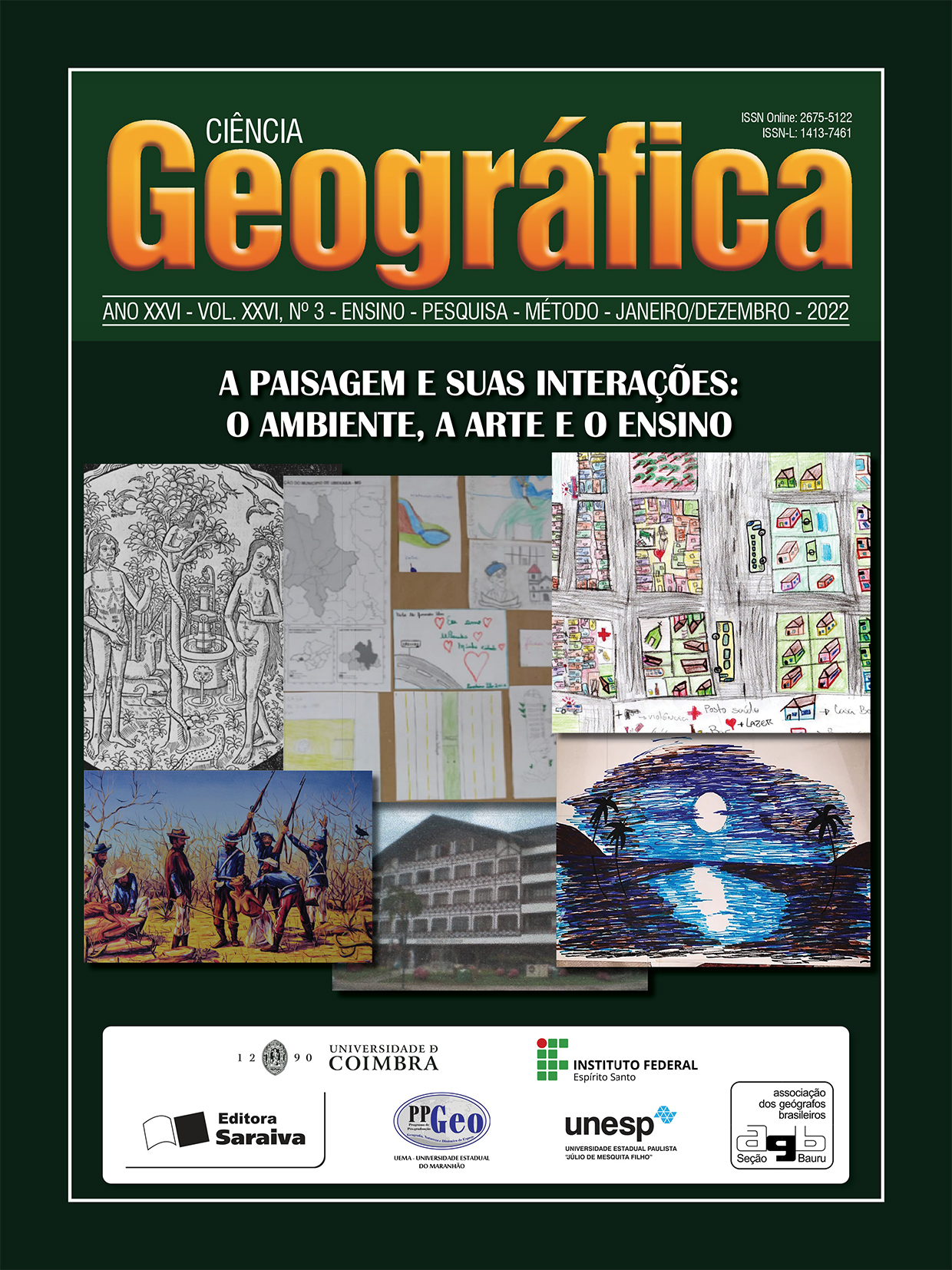O ESTUDO DAS PAISAGENS DO LUGAR DE VIVÊNCIA PELO ATLAS GEOGRÁFICO ESCOLAR DE JACOBINA/BA/BRASIL
DOI:
https://doi.org/10.18817/26755122.26.3.2022.3055Palavras-chave:
Ensino de Geografia. Conceitos geográficos. Mediação didática. Aprendizagem.Resumo
Este trabalho reflete sobre o ensino da Geografia a partir do lugar de vivência e a ampliação das discussões teórico-conceituais como papel relevante na significação dos conceitos geográficos em sala de aula. A metodologia adotada baseou-se nos caminhos metodológicos apresentados por Araújo (2022) que traz a abordagem qualitativa com caráter exploratório, bibliográfico e documental concretizada a partir da realização de questionários e oficinas pedagógicas. Os resultados mostraram que o uso das paisagens do lugar de vivência (município) pode proporcionar a visão integral da representação espacial dos lugares, aproximar os objetivos do conhecimento geográfico (instrumental teórico) dos objetivos da Geografia escolar (saber escolar) e da realidade dos alunos, além de possibilitar o diálogo entre os conceitos e a realidade do lugar, para se evitar a aplicação mecânica do que é produzido na escola e o que é vivido fora dela, propiciando a análise crítica da realidade.


